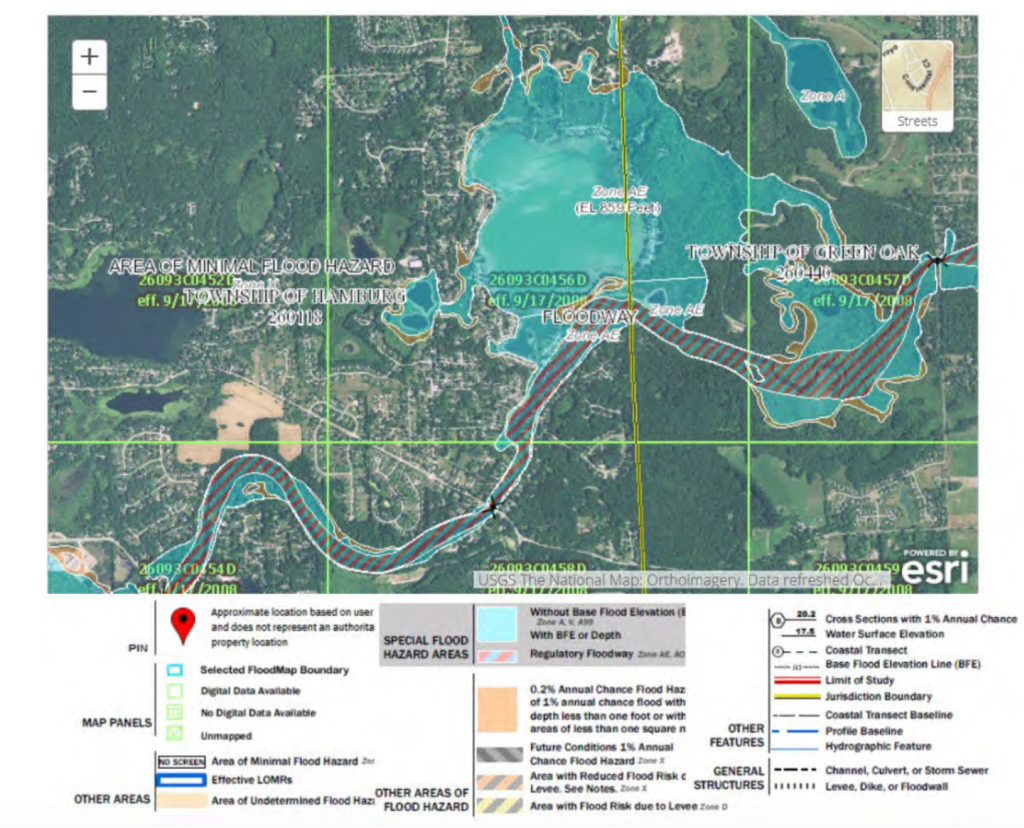Residents Working Against Huron River Flooding are advancing solutions to the region’s flooding that use green initiatives, like wetland development, for mitigation. Since 1951, precipitation across the Great Lakes region has increased by 14%, and the occurrence of heavy storms has increased by 35%. Today, many creeks repeatedly overflow their banks, and many normally seasonal wetlands hold standing water through late summer. For residents within the Huron River watershed, this has meant flooded streets, homes and damaged infrastructure. Residents Working Against Huron River Flooding takes a data-informed approach to wetland restoration, shares information about raising structures as well as updates on flooding events, and collaborates with community leaders to identify and secure funding. Through these efforts, they are paving the way for a more sustainable future for their community through environmentally sustainable solutions.

Residents Working Against Huron River Flooding is a small organization with outsized expertise. Its co-founders, Dr. Amber S. Bismack and Diane Henry, serve on the Hamburg Township Flood Prevention Committee and the Huron River Watershed Council Board of Directors. Dr. Bismack is an assistant professor of science education, which allows her to be a vocal leader and educator of the needs of environmental reform in a continually flooding community. Bismack is a long-time resident who has experienced and supported her community through numerous flooding events. Working with local and national partners, Residents Working Against Huron River Flooding collects and analyzes data on upstream water inputs to Ore Lake and Huron River; uses that information to assess the extent to which wetland restoration or protection upstream could mitigate flooding; targets where wetland restoration or protection efforts would be most beneficial; and identifies available funding sources for the community.

For more information:
Flooding nightmare at Ore Lake – WXYZ TV Detroit, August 2023
Amber Bismack with Residents Working Against Huron River Flooding – Mike and Jon Got It Going On Podcast, August 2022
Adapting to Chronic Flooding: Survivors’ Stories and Actions they Take! – America Adapts Podcast by Doug Parsons, June 2022
Hamburg Township residents band together to find solutions to flooding – Click on Detroit, August 2021
Flooding leaves neighbors concerned for their safety – WNLS, January 2020
Analyzing Upstream Inputs to Ore Lake and Assessing Wetland Restoration Options for Regional Flood Mitigation – Thriving Earth Exchange
Flooding Continues Along Huron River & Lakes In Hamburg Township – WHMI-FM 93-5, May 2018
Contact
Dr. Amber S. Bismack
Website
Social Media
Climate Impacts
Flooding
Strategies
Halting Bad Development, Nature-Based Solutions
501c3 Tax Deductible
No
Accepting Donations
No
